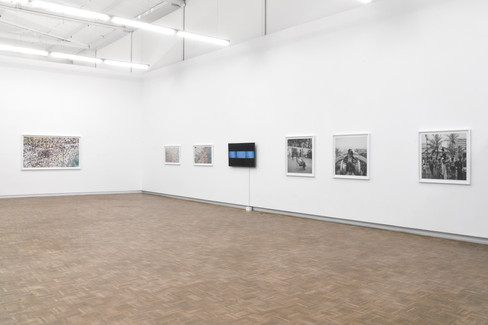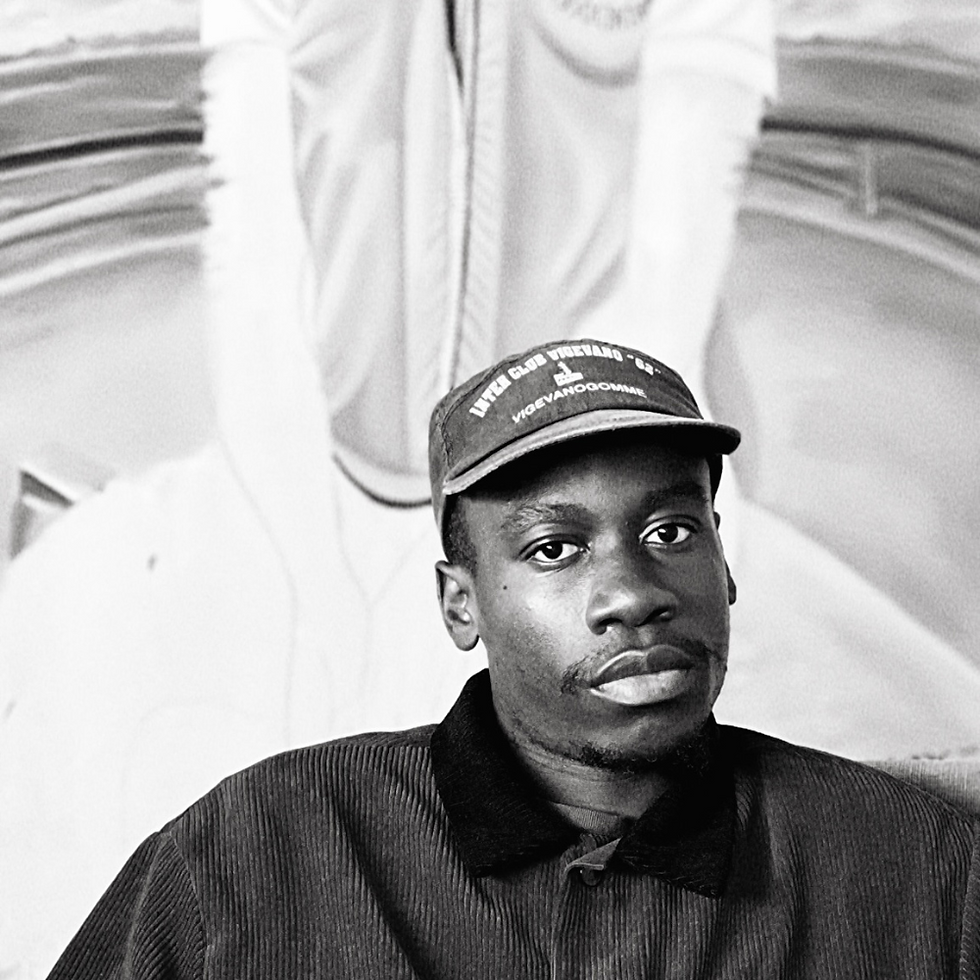Reclaiming the Shore: Black Presence, Leisure, and Resistance in eBhish’
- Anelisa Mangcu
- Dec 9, 2024
- 3 min read
eBhish’ presents a chorus of voices on notions of Black social life, public communion and the humanities of the Indian Ocean. While some contributors respond to the ongoing series eBhish’ others share their critical perspectives and ponder on the intimacy and vastness of being Black at the beach.
Contributions by Thulile Gamedze, Russel Hlongwane, Nomusa Makhubu, Amogelang Maledu, Kopano Maroga, Lindiwe Mngxitama, Maneo Mohale, Vusumzi Nkomo, Julie Nxadi and Luvuyo Equiano Nyawose.
Edited by Luvuyo Equiano Nyawose
Produced by Luvuyo Equiano Nyawose studio
Designed by Matthew Bradley
Copy editors Jordan Coley, Misha Krynauw, Mmabatho Thobejane, Keely Shinners and Sihle Sogaula.
Cover: Luvuyo Equiano Nyawose, Untitled 1 (December 16th, 2019), 2021
Image credits: Luvuyo Equiano Nyawose studio, Bob Gosani (for Drum Magazine), Amogelang Maledu family archive, Maneo Mohale family archiveISBN 9778-3-949973-43-7
Indigo Waves and Other Stories: Re-Navigating the Afrasian Sea and Notions of Diaspora Group exhibition, installation photography by Dillon Marsh.
Luvuyo Equiano Nyawose’s artistic and research project focuses on reimagining the historical narratives around Black leisure and presence, particularly in the context of South Africa’s beaches. Through his work, he aims to reclaim and elevate the stories of Black beachgoers, countering the historical exclusion and erasure of these experiences from mainstream archives. His project eBhish’ is a powerful example of this, offering a complex and intimate exploration of Black life on the beaches of eThekwini (formerly Durban).
At the heart of eBhish’ is the attempt to reinsert the presence of Black people into a space where they were once systematically excluded. During apartheid, Black South Africans were relegated to designated "black beaches," often facing discrimination and hostility when trying to access the coastline. Despite this, the beach has remained a vital space for Black communities to assert their freedom, joy, and sense of identity. For Luvuyo, these spaces are not just about leisure—they represent sites of resistance and self-determination.
eBhish', a solo show by Luvuyo Equiano Nyawose at Blank Projects.
In his work, he takes inspiration from what Mexican artist Carlos Amorales calls a "liquid archive"—a dynamic, flexible approach to documentation that allows for the reimagining of space and identity. By rejecting fixed archives, eBhish’ proposes a more fluid and evolving way to document Black histories
Photography has played a central role in Luvuyo’s practice. Growing up in Durban, he recalls family trips to the beach, moments of joy tinged with the lingering legacy of exclusion. Photography, particularly through family albums, became a means of preserving personal histories and capturing everyday moments. For Luvuyo, these photographs are not just memories; they are tools for challenging the dominant visual culture, and for asserting Black people’s right to be seen and represented in the images that shape our collective understanding of history.
The project eBhish’ is an ongoing effort to document and reclaim the narrative around Black presence in spaces traditionally dominated by white beachgoers. Luvuyo's work celebrates the radical joy and creative expression that Black people bring to the beaches of Durban, transforming them from sites of exclusion into spaces of self-assertion and freedom. His work continues to amplify Black voices, offering a reimagined vision of public spaces where Black identities can be both celebrated and contested.
Beyond eBhish’, Luvuyo Research is also an artist, curator, filmmaker, and educator. He is a member of the Re-curators Curatorial Collective and continues to develop research and methodologies that centre African and diasporic cultural production. His work engages deeply with the intersection of art, history, politics, and the lived experiences of Black people. Through his practice, he seeks to offer new ways of seeing and understanding the relationship between Black bodies and public spaces.
eBhish' solo exhibition at KZNSA Gallery, Installation images by Paulo Menezes.
Luvuyo has grown the eBhish’ project in a variety of contexts, including showing his photographs in exhibitions at Blank Projects, Zeitz MOCAA, and KZNSA Gallery. The project continued its reach through a Book Launch Tour across Cape Town, KwaZulu-Natal, and Johannesburg. Each of these exhibitions and public engagements contributed to broadening the conversation around the reclamation of public spaces by Black communities, bringing Luvuyo’s research into a wider cultural and artistic discourse.
Through his work, Luvuyo Equiano Nyawose continues to challenge historical erasure and marginalisation, offering new perspectives on Black leisure, presence, and resistance in spaces that were never meant to be free for Black people.
























Comments